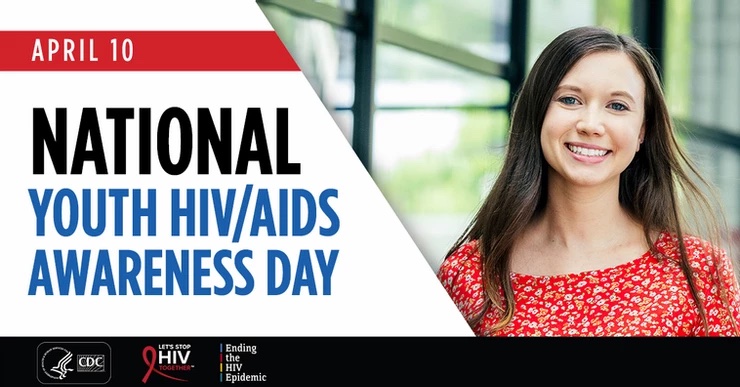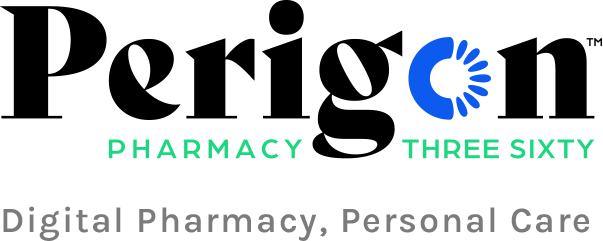April 10th is National Youth HIV & AIDS Awareness Day, so we are taking the time to talk about HIV/AIDS and the importance of screening in our younger populations. In 2018, the Center for Disease Control (CDC) estimated that 21% of new HIV diagnoses were those aged 13-24 years old. That means about 1 in 5 new HIV diagnoses are in this age group, but it’s possible this is an underestimation. The 13–24-year age group is the least likely to be aware of their infection and consequently, they are the age group with the lowest testing rates with only 9% of high school students reporting that they have been tested for HIV. This not only can contribute to the spread of HIV, but can also lead to disease progression due to late starts in treatment in people who do not know their HIV status. In order to encourage screenings and educate the public, we are starting a mini-series on HIV/AIDS awareness, prevention, and treatment.

We’ll start off our discussion by talking about Ryan White and the groundwork he laid for HIV awareness. Ryan was born with a blood disorder called hemophilia and as a result, he received many blood transfusions. On December 17, 1984 at the age of 13, Ryan was diagnosed with AIDS. He faced a lot of discrimination and stigma from those around him and was not even allowed to attend school because of his diagnosis. This was at a time when no one knew much about HIV/AIDS. People in his community assumed he did something to deserve it and that it was in some way a punishment for his action. Ryan and his mother quickly became advocates for people with HIV/AIDS and educated those around them to show that those with HIV/AIDS are not bad people and are just as deserving of acceptance and quality health services. Their work led to the passing of the Ryan White Comprehensive AIDS Resources Emergency Act which funded a federal program focused on providing care to people with HIV/AIDS.
So, what is HIV? HIV stands for Human Immunodeficiency Virus and this virus is unique in its ability to cause infection because its main goal is to destroy the very immune cells needed to kill off the virus. Not only is HIV a lifelong infection, but it also increases the risk of developing other infections and diseases due to a now compromised and weakened immune system.
You may be wondering how one gets HIV? The virus is transmitted or spread through bodily fluids like blood, breastmilk, semen, pre-seminal fluid, and rectal and vaginal fluids. Therefore, the virus is most commonly spread through unprotected anal or vaginal sex with a partner who is HIV-positive. Other ways of spreading the virus include sharing needles or syringes for injectable drug use and from mother to baby during pregnancy, birth, or breastfeeding. Another way of spread that is not as common is through exposure to the bodily fluids of an HIV positive person through open cuts, sores, or accidental needlesticks by healthcare workers. Now that we have discussed it the virus is spread, let’s address how it is NOT spread. It does not spread through the air or water and you cannot get it from mosquitos or other insects. Most importantly, you cannot spread HIV through hugging, shaking hands, sharing drinks, or through saliva, sweat, or tears unless you somehow come in contact with the blood or other bodily fluids mentioned above through that action.
If someone were to become infected with HIV, you might experience flu-like symptoms 2-4 weeks after infection. This can include fever, chills, night sweats, muscle aches, fatigue, and swollen lymph nodes in your armpit, groin, or neck. Keep in mind that these symptoms can resemble other conditions, but if you have recently engaged in one of the high-risk behaviors mentioned previously, you are encouraged to get tested. Following this 2–4-week period, the next phase of infection is called chronic or clinically latent HIV. During this period, one can have few or no symptoms but during this time the virus is still active, replicating, and can be spread to others.
Unfortunately, there is currently no cure for HIV. Although, if a patient starts treatment called antiretroviral therapy, they can reduce the amount of virus present in their blood and get to an undetectable level meaning that there is extremely low risk of spreading the virus to others. However, if the patient does not get treatment during this time, the virus will continue to replicate and kill off the patient’s immune cells, and this is when the patient can be at risk of developing Acquired Immunodeficiency Syndrome or AIDS. AIDS is the most advanced stage of HIV that can develop about 10-15 years after an untreated HIV infection. Patients with AIDS have very few immune cells and therefore are subject to developing certain infections or cancers only seen in patients with AIDS due to their weakened immune systems. Some of the symptoms associated with AIDS include rapid weight loss, extreme and unexplained tiredness, long-lasting diarrhea, recurring fever, memory loss, and depression.
For most of us, especially those in the 13–24-year-old age group, we often think we are invincible and that we aren’t subject to the types of conditions we read and hear about in the news and on social media. It is important to remember that while certain groups are more at risk, it can happen to anyone. Therefore it’s important to keep ourselves educated on the various aspects HIV/AIDS in order to help reduce the spread and help those with HIV/AIDS the support and treatment they need to get to undetectable virus levels and live long and fulfilling lives.
Thank you for taking the time to learn a bit about HIV/AIDS and be on the lookout on our next post about testing and prevention!
For more information, go to: https://www.cdc.gov/hiv/group/age/youth/index.html
About Valeda Rx
Valeda Rx is an independent national specialty pharmacy, servicing all 50 US States and the District of Colombia. We are focused on improving the care for patients living with complex and chronic conditions such as Hepatitis C, HIV, Multiple Sclerosis, Rheumatoid Arthritis, Psoriasis, Crohn’s, Oncology Diseases and more. Our Care Team puts patients’ needs first, treating each as though they were part of our own family.
By working together to coordinate the right medication for the right therapy at the right time for our patients, we support and guide the improvement of patient outcomes. Whether you are a patient, caregiver, prescriber or partner, you will receive the type of independent care and attention and service you not only need, but that you also deserve.
